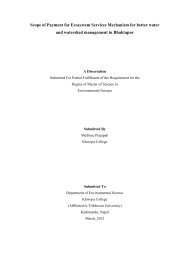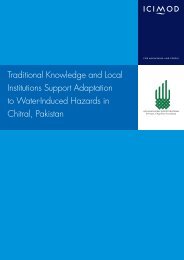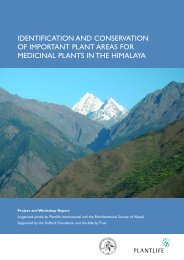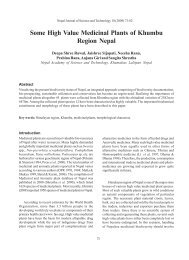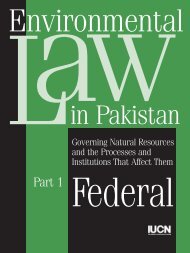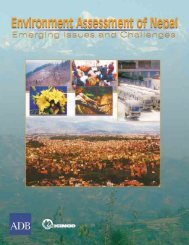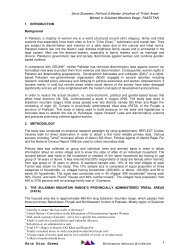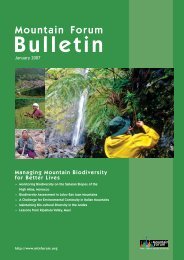Flash Flood Risk Management â A Training of Trainers ... - ReliefWeb
Flash Flood Risk Management â A Training of Trainers ... - ReliefWeb
Flash Flood Risk Management â A Training of Trainers ... - ReliefWeb
Create successful ePaper yourself
Turn your PDF publications into a flip-book with our unique Google optimized e-Paper software.
Day 8<br />
Precautionary principle<br />
The precautionary principle can broadly be defined as “the imposition <strong>of</strong> controls in advance <strong>of</strong> complete<br />
scientific understanding” (WMO 2006). In the context <strong>of</strong> environmental protection, Principle 15 <strong>of</strong> the Rio<br />
Declaration provides that: “where there are threats <strong>of</strong> serious or irreversible damage, lack <strong>of</strong> full scientific<br />
certainty shall not be used as a reason for postponing cost-effective measures to prevent environmental<br />
degradation” (UN, 1992a).<br />
A precautionary approach could equally be taken with respect to the protection <strong>of</strong> human life or property.<br />
Article 3(3) <strong>of</strong> the United Nations Framework Convention on Climate Change states that: “The Parties should<br />
take precautionary measures to anticipate, prevent or minimise the causes <strong>of</strong> climate change and mitigate<br />
its adverse effects. Where there are threats <strong>of</strong> serious or irreversible damage, lack <strong>of</strong> full scientific certainty<br />
should not be used as a reason for postponing such measures, taking into account that policies and measures<br />
to deal with climate change should be cost-effective so as to ensure global benefits at the lowest possible<br />
cost” (UN, 1992b).<br />
Legal framework for IFM in transboundary basins<br />
The HKH region has many transboundary river basins. The most relevant law relating to flood management<br />
issues at the transboundary level is the Law <strong>of</strong> International Watercourses, which includes United Nations<br />
Watercourse Convention. It will be necessary to explore whether other provisions, such as the protection <strong>of</strong><br />
the environment and the principles enunciated in other related international conventions and protocols, could<br />
be drawn upon to establish a legal framework for IFM in transboundary basins.<br />
session 17<br />
127



